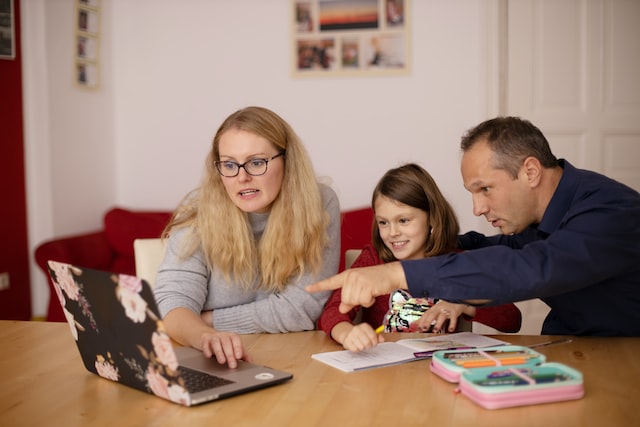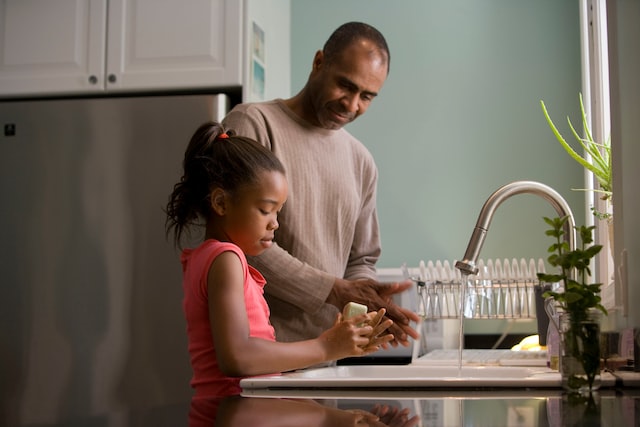Divorce isn’t easy for anyone, but children can take it particularly hard. Many children don’t understand what is happening and many more feel the divorce is somehow their fault. Helping kids cope with divorce may just be the most important part of getting divorced when there are kids involved. It’s crucial for both parents to take an active role in this process.
6 Strategies For Helping Kids Cope With Divorce
1. Communicate Openly
The divorce should be explained in simple and straightforward terms. If at all possible, both parents should be part of the conversation. Your language should be tailored to the age of your children as well. So for instance, when speaking with very small children you might say something like, “Mommy and Daddy yell at each other a lot and everyone is feeling unhappy. So we have decided to live in different houses. But we love you very much and we will both take care of you still.”
2. Keep Things Predictable

One of the most important aspects for helping kids cope with divorce (especially younger kiddos) is to keep things as much the same as possible. Talk to kids about what to expect so there are no more “surprises” than necessary.
Children do best when their environments are familiar and predictable. Do your best to provide the structure and routine your children have become used to.
3. Explain How Things Will Work

When helping kids cope with divorce it’s important that both parents explain in as much detail as necessary (depending on the age of the child) what is going to happen and how it will happen. Patience and honesty are critical in this process as the kids will likely have lots of questions.
Many children will panic at the news, they will not understand how both Mommy and Daddy will both remain in their lives. So clearly explain how things will work going forward. “You will spend weekends with Daddy, and the rest of the time here with Mommy.” You may also want to work on creating a calendar together so your child has something to refer to.
4. Never Speak Badly About Your Ex

If you really want to screw your kids up and make your life way more difficult than it needs to be, speak poorly of your ex (their mother/father) to your kiddos. That is probably a guaranteed way to really damage all the relationships at play. And trust me, one day, they will realize what you did.
Sadly, as a marriage counselor, I see this all too often. Your ex may have caused you a lot of emotional pain in your relationship, but to your child, your ex is their mommy or daddy. Never speak unkindly about your child’s other parent – no matter what they did (or you think they did).
Talking poorly about your child’s parent to them damages your child in ways you can’t even begin to imagine. So no matter how much you’re hurting, find someone else to trash talk your ex to. Your best bet is well-trained therapist who can teach you how to process your hurt and anger in a way that doesn’t further damage your relationships (and your children) in life.
5. Encourage Your Children Be Honest About Their Emotions

When helping kids cope with divorce it’s critical that they are allowed to be open and honest about their emotions and you are responsible for creating the environment for this.
Your child will sense that YOU are dealing with a lot of emotions, and, wanting to protect you, he or she will keep their emotions to themselves. It’s important that you encourage your children to talk to you candidly about how they’re feeling. Let them know they can come to you at any time and talk to you whether they’re scared, sad, or angry or anything else. And trust me, despite the fact that maybe they’re saying they’re fine, they’re not. Too often parents are uncomfortable with this, so they take “I’m fine” at face-value and guess what? They aren’t.
6. Seek Guidance
Everyone’s situation is different – and all children are different. Some may take the news better than others. But you may find that your kiddo is struggling more than you originally expected. If this happens, seek the guidance of a well-trained therapist you like and trust who can teach you healthy coping skills as well as teach you how to teach your children how to cope with divorce.
James Killian, LPC is the Principal Therapist & Owner of Arcadian Counseling in Greater New Haven, CT where they specialize in helping over-thinkers, high achievers, and perfectionists reduce stress, increase fulfillment and enhance performance so they can move From Surviving To Thriving.

